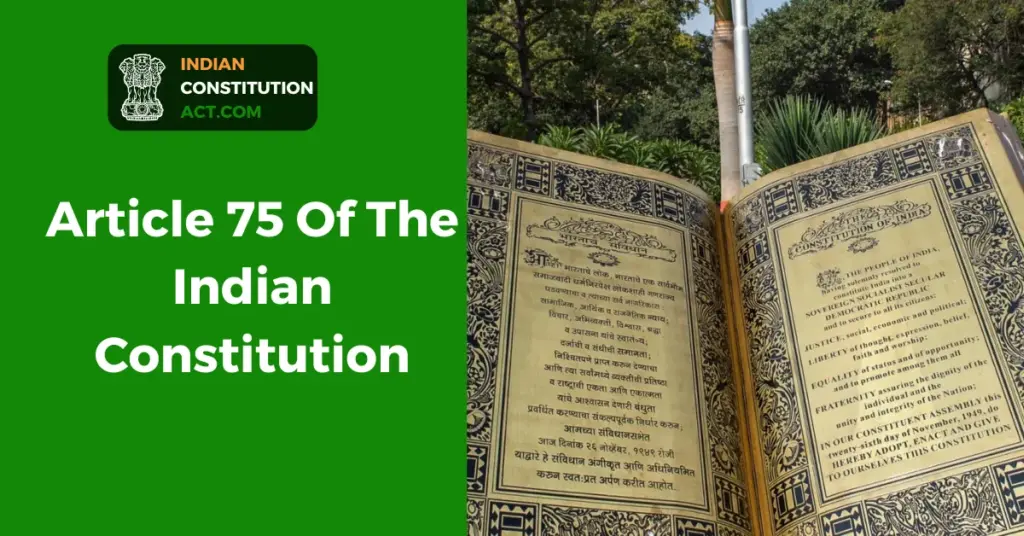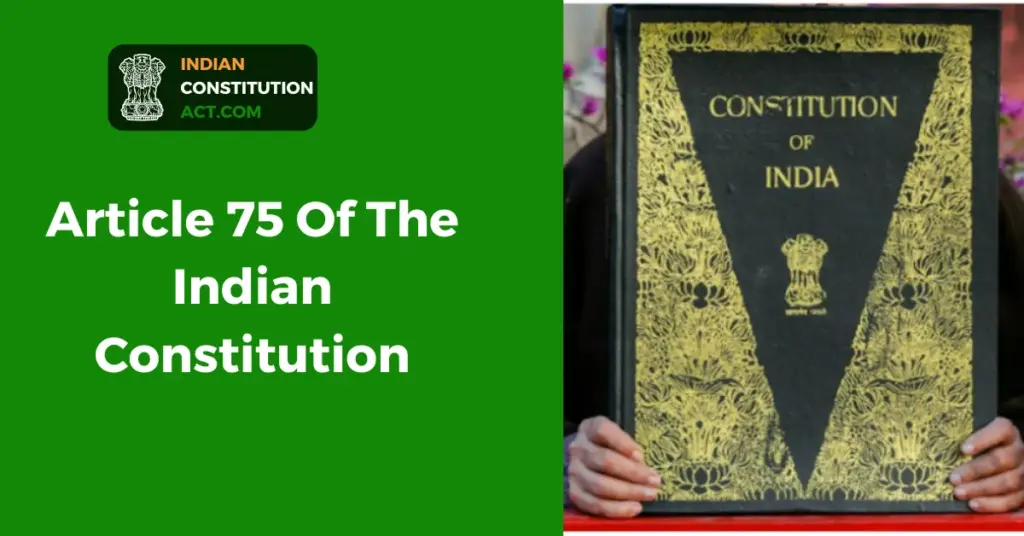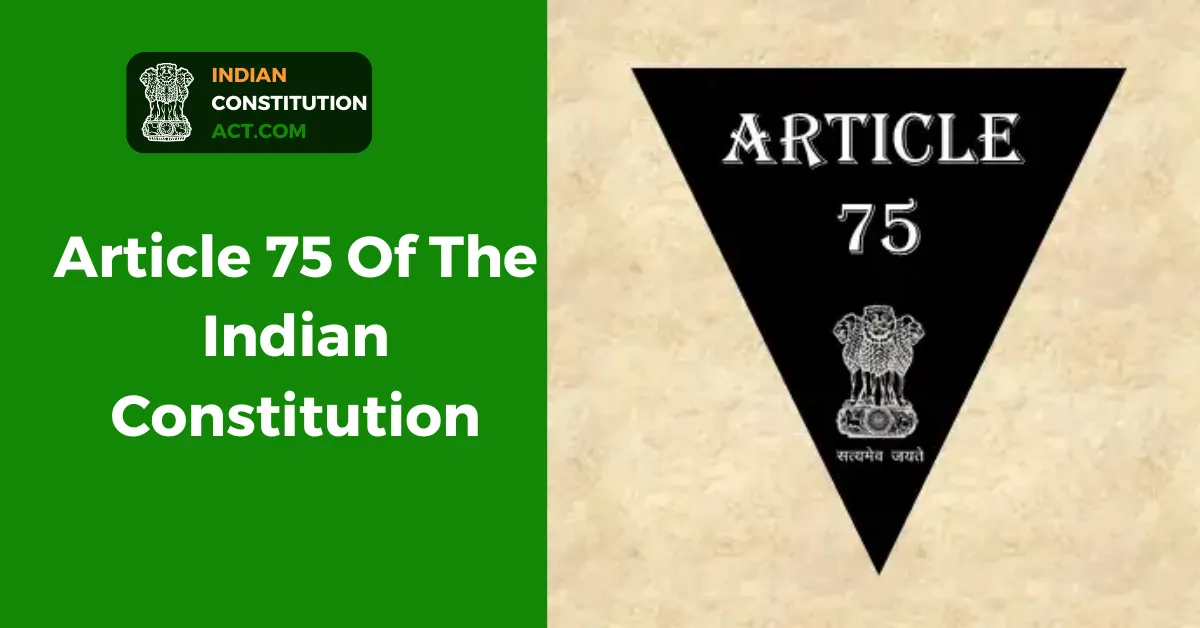As you all know the Indian Constitution is divided into 448 Articles and Articles are divided into 25 parts. The Indian Constitution is the foremost law of Bharat. It is a document that delivers laws for political structures, powers, and duties of the government. In today’s blog post, we have explained Article 75 of the Indian Constitution.
Table of Contents
Article 75 Of The Indian Consitution

Article 75 of the Indian Constitution tells us what are the conditions and rules for those who become ministers. First of all, it is mentioned in this article that the Prime Minister will be the head of your Council of Ministers and the President will appoint the Prime Minister. Then the Prime Minister will give it in writing to the President that these are our ministers, you should make them take the oath or in simple words, appoint them. However, there is a criterion that only 15% of the total members of the Lok Sabha can be appointed as ministers in a single government.
Clause 1: The ministers will hold their office at the pleasure of the president. Unless the President orders to remove a minister, no minister can resign from his post. For example, if the president says that Amit Shah is not working properly and he should be removed from the post of minister, then this is possible.
Clause 2: The group of ministers i.e. Council of Ministers will be collectively responsible for the Lok Sabha. As soon as a candidate is told that he will become a minister, then when he is ready to become a minister, the President himself will administer the oath to him.
Clause 3: In the oath, the minister has to say that he will do his work well, will follow secrecy, and will not violate the constitution of India.
Clause 4: If the President administers an oath to a person to become a minister and he is not a member of any House of Parliament. In this case, that minister will have to become a member of any House within 6 months and if he is unable to do so, he will have to resign from the post of minister.
Clause 5: The salary and allowances that a minister gets can be changed at any time as per the law of the parliament. This means that whenever the MPs of the parliament want, they can change the salary and allowances of the ministers.
Also read: Article 73 Of The Indian Constitution Explanation: Extent of Executive Power
Article 75: Other Provisions As To Ministers

The Prime Minister shall be appointed by the President and the other Ministers shall be appointed by the President on the advice of the Prime Minister.
The Ministers shall hold office during the pleasure of the President.
The Council of Ministers shall be collectively responsible to the House of the People.
Before a Minister enters upon his office, the President shall administer to him the oaths of office and of secrecy according to the forms set out for the purpose in the Third Schedule.
A Minister who for any period of six consecutive months is not a member of either House of Parliament shall at the expiration of that period cease to be a Minister.
The salaries and allowances of Ministers shall be such as Parliament may from time to time by law determine and, until Parliament so determines, shall be as specified in the Second Schedule.
We have tried to explain Article 75 of the Indian Constitution well and hope you have got all the important information about this article. If there is still any information left, then we would like to tell you that you can ask questions about that thing in the comment section and we will try to reply to your question or any doubt quickly.
